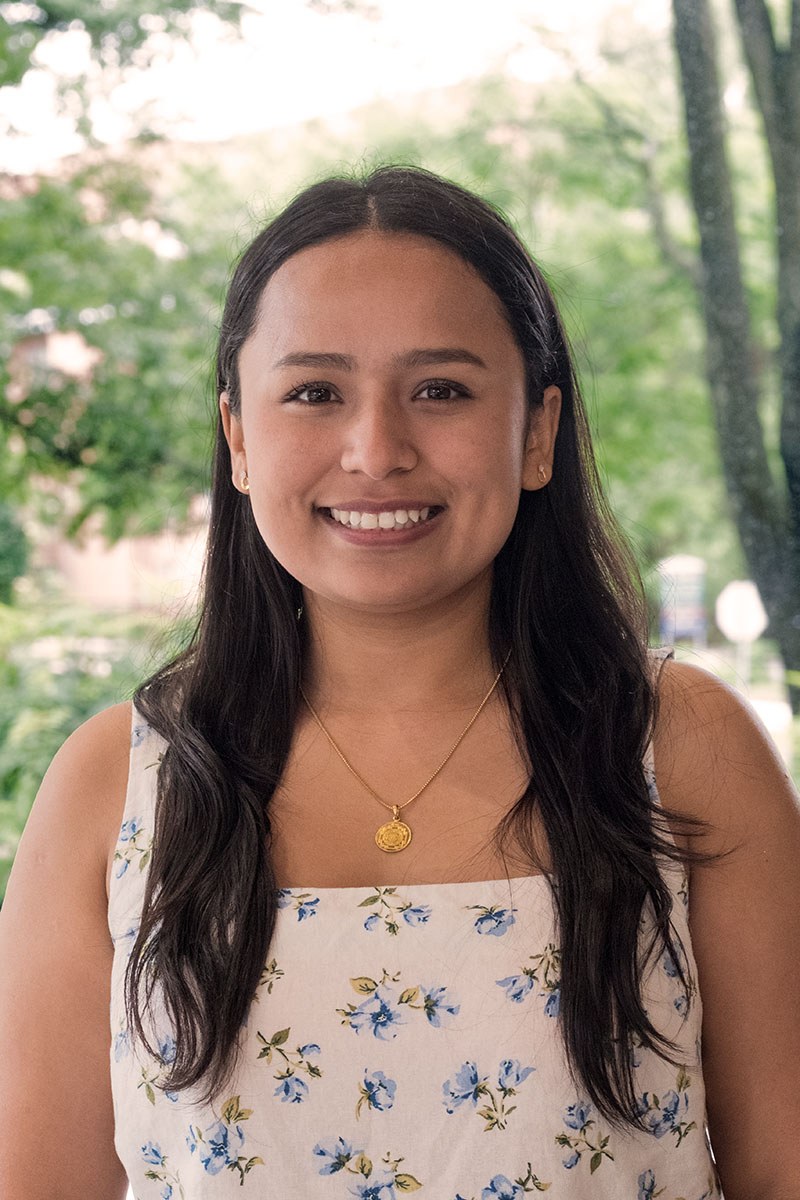This is the eigth short news article written by students, during the professional development class of Spring 2025, about each other's research.

Grace Tiwari
Student Spotlight: Grace Tiwari
By Orion Pizzini
Farmers work tirelessly to put food on our tables. The last thing they need to worry about is a pest destroying their crops. To manage them, they must ask: Do we have pests? How many pests? Should we act? Answering these questions requires even more time and effort spent on their farms. Grace Tiwari, a Ph.D. student in the Applied Systems Ecology research group led by Assistant Professor Heather Grab, is working to make these questions easier to answer. Grace’s goal is to develop an automated monitoring system for a prominent pest, the corn earworm (Helicoverpa zea) which attacks crops such as sweet corn, tomatoes, and cotton.
"By integrating cutting edge technology with ecological understanding, we are revolutionizing how we monitor and manage agricultural pests. We are creating more sustainable solutions for farmers, while protecting our food security" says Grace.
Corn earworm is a common pest of high-value crops like sweet corn where they feed on the reproductive parts of the plant. Left untreated, this pest can cause up to 50% yield loss for sweet corn. Current methods to understand the corn earworm involve manually identifying and counting individuals that are caught in field traps baited with pheromones to lure them in. While this method is effective, it is labor-intensive, and the data often gets to the farmer too late, resulting in limited time to determine if insecticides should be applied.
This is where Grace steps in. She is developing a tool that automates pest monitoring to obtain accurate counts of corn earworms. She aims to modify standard pheromone traps by attaching sensors to count corn earworm moths as they enter. This would let farmers obtain real time information about the pest population in their field, and how it may change over time. She then plans to take this pest data, in combination with landscape cover, and climate data to develop predictive models that allow farmers to know when corn earworms might be migrating into a region or when the next generation of adults will be emerging. These models could enhance current networks like Pest Watch, maintained by Extension teams at Penn State and other universities, to create guidelines that would help farmers stay two steps ahead of field pests.
To test her tool, Grace plans on setting up traditional corn earworm traps alongside her automated trap, and comparing their efficacy and the time and effort spent on monitoring the corn earworm population. While this project is still in the early stages of development, Grace has been diligently studying and reading on what methods of automated monitoring have already been tested, and what she can apply to her current system. She also plans to work with the INSECT NET graduate training program and to help design and refine her traps. INSECT NET is an NSF-funded program at Penn State that helps students develop automated monitoring systems for insects using technology and artificial intelligence.
Once developed, tested, and refined, Grace hopes her system will help farmers and researchers track corn earworm presence, movement, and migration in real time and make predictions for future weeks. By allowing farmers to make faster, and more informed decisions about their pest control methods, Grace hopes her design will help farmers to fine tune and reduce insecticide use. Saving time and money, preserving our food security, all while protecting insect biodiversity - Grace is innovating how we track pests, giving farmers the power to outsmart threats, before they can take root.
Grace Tiwari is a Ph.D. student in Professor Heather Grab's research group in the Department of Entomology at Penn State. Grace Tiwari's research is supported by funding from the Department of Entomology and College of Agricultural Sciences at Penn State. Tiwari is also a Trainee in the "Interdisciplinary Studies in Entomology, Computer Science and Engineering Network" (INSECT NET) graduate training program, which is funded by the National Science Foundation Research Traineeship Program (Award Number (FAIN): 2243979, PI Grozinger).

